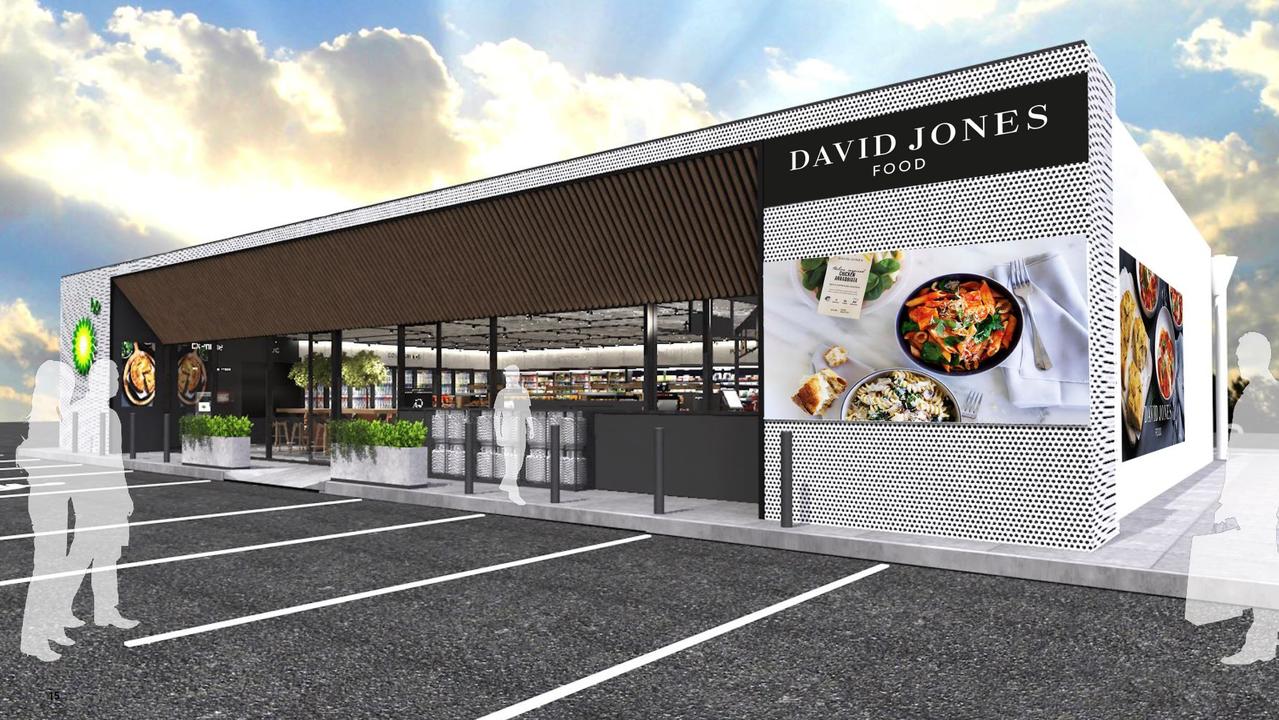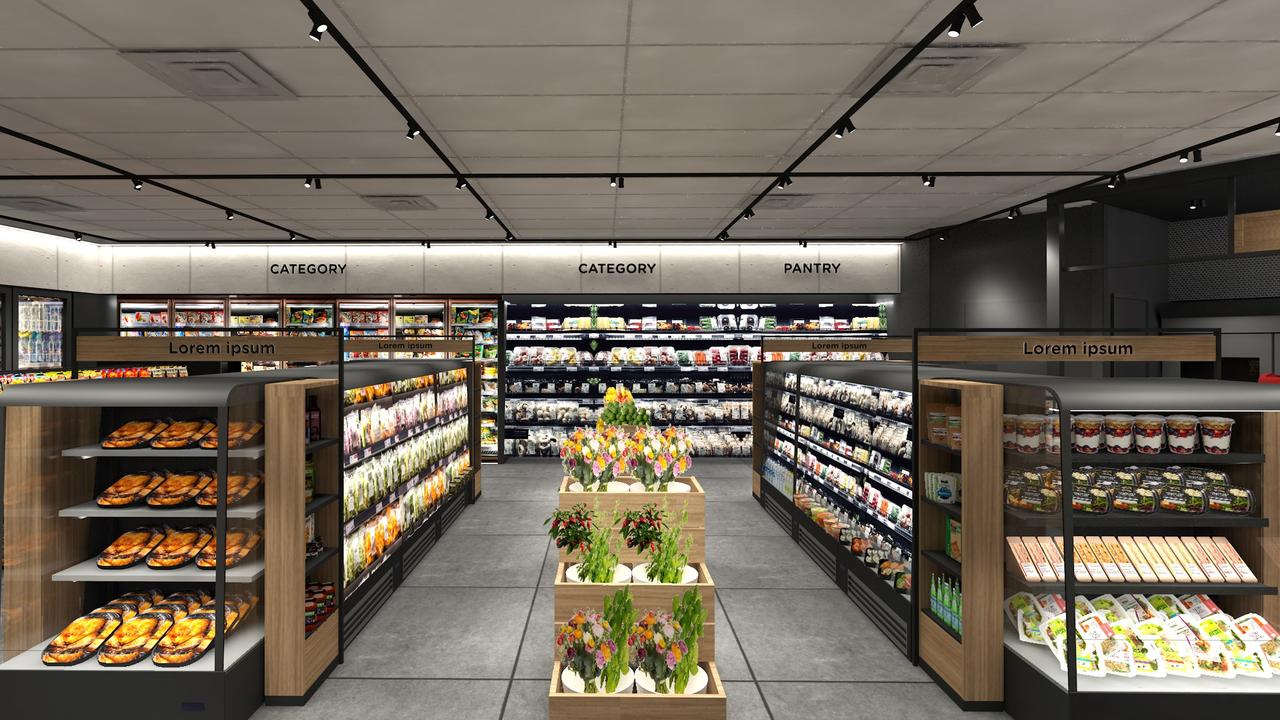David Jones profit drops 42% amid Sydney flagship store refurbishment
The department store chain has gambled $400 million to save the once prestigious retail network, as the boss reveals the next stage in the plan.
The David Jones boss says he will spend more time Down Under to closely manage the $400 million refurbishment gamble of the store network as the struggling department store is dealt yet another blow.
South African owner Woolworths Holdings on Thursday revealed the company’s full-year profit tumbled 42 per cent as it focuses on discounting amid major renovations to its flagship Sydney store.
RELATED: David Jones value cut by another $437 million
RELATED: Department store closures after 3rd year of failing sales
RELATED: David Jones and BP to create food hall servos
The company’s operating profit fell from $64 million to $37 million in the 53 weeks to June 30.
“I am going to spend more of my time there,” Woolworths Holdings chief executive Ian Moir told The Australian.
“I really want to see that transformation complete, and I think it can add more value there than anywhere else in the business.”
Mr Moir insists David Jones could still survive despite slashing another $437 million off its value earlier this month and declaring the Australian retail sector is in recession.
“I think we can because we are differentiated. There is focus on the top-end customer, there is focus on being exclusive, having exclusive brands at the very top end … taking the cost base of the business down, having a great online business,” he told the publication.
“I think we can outperform the market. We have got to start getting the benefit of all the money we have spent on systems, stores and people … it has been a really tough three years, but we will get through it.’’
The group bought the prestigious network of stores in 2014 for $2.1 billion as part of the chief executive’s plan to turn the company into a leading southern hemisphere retailer.
But the value of the beleaguered department store chain has shrunk to $965 million, and the company will now push ahead with plans to reduce the footprint of the David Jones stores.
“Space reduction to improve the productivity of the existing store portfolio is a priority,” Woolworths Holdings said in a statement to the Johannesburg Stock Exchange.
In Sydney, the refurbishment of the Elizabeth Street store’s fashion and beauty floors will be completed ahead of the Christmas trading period, with the below-ground food and home floors opening in March.
“The WHL Board believes that the valuation of David Jones is realistic and reflective of its prospects,” Woolworths said.
“The board is focused on the turnaround of David Jones and is ensuring that the business affects the necessary actions.”

David Jones announced earlier this week it would bring its food hall experience to service stations across the country as part of a major tie-up with BP, offering motorists more than 350 products, including rotisserie chickens, pre-prepared meals, sushi and sandwiches as well as fresh produce and long-life groceries.
The deal, the commercial terms of which have not been disclosed, will convert five BP locations in Sydney and five in Melbourne into swanky new David Jones-branded mini-markets over the next six months.
Additional sites will follow — there are around 1400 BP-branded service stations in Australia, 350 of which are company-owned. BP has similar tie-ups in more than half a dozen other countries, most notably with high-end UK department store Marks & Spencer, famed for its ready meals and gourmet sandwiches.
“We are investing in different parts of the business to set ourselves up for the future, and food is one of those areas,” said David Jones Food managing director Pieter de Wet, who conceded “historically” its food halls weren’t in the most convenient locations.
“BP’s got a customer base that really overlaps with David Jones. What this partnership brings to customers is an opportunity to have our brand easily accessible. To build a sustainable food business takes a lot of time, therefore this partnership was appealing to us. It gets our brand out there. It’s a key aspect of how we’re going to grow our business going forward.”

Unlike the Coles Express partnership with Shell, Mr de Wet said David Jones at BP would be “quite a different offering to what’s out there in the market”, with the bulk being short shelf-life, fresh food products.
“Other retailers, quite often you’ll find a ready meal has a shelf life of 30 days,” he said. “Ours have a shelf life of four to five days (because they have) no preservatives. It’s quite a diverse range, from free-range rotisserie chicken, which you don’t see anywhere else, all the way through to ready meals, a full range of groceries and quite a focus on healthy snacking.”
But he stressed the focus would be on “not pricing in a way that excludes customers”. Mr de Wet said bringing rotisserie chickens, one of David Jones’ top-selling products, to service stations “speaks to the fact that service stations worldwide have evolved into a place where you don’t only buy food for now but also for later”.
“There’s no reason why the Australian consumer would not behave in the same way,” he said. “Rotisserie chicken we find is the cornerstone of shifting the customer to food for later. We’ve (spent) a number of years making sure our chicken is the best in the market, and therefore it’s actually quite a key aspect.”
Queensland University of Technology marketing professor Dr Gary Mortimer said the deal was “smart” as it appeared to be targeting a more affluent consumer, less sensitive to rising petrol prices.
“Look at the Coles Express results last week, it was a disaster,” he said. “As a result of high fuel prices people simply didn’t go there, and they saw a decline in sales. If you’re targeting a higher disposable income, you’re somewhat insulated from high fuel prices. If you’re filling up your BMW, you don’t care if the price is 20 or 30 cents higher.”
Continue the conversation on Twitter @James_P_Hall or james.hall1@news.com.au




